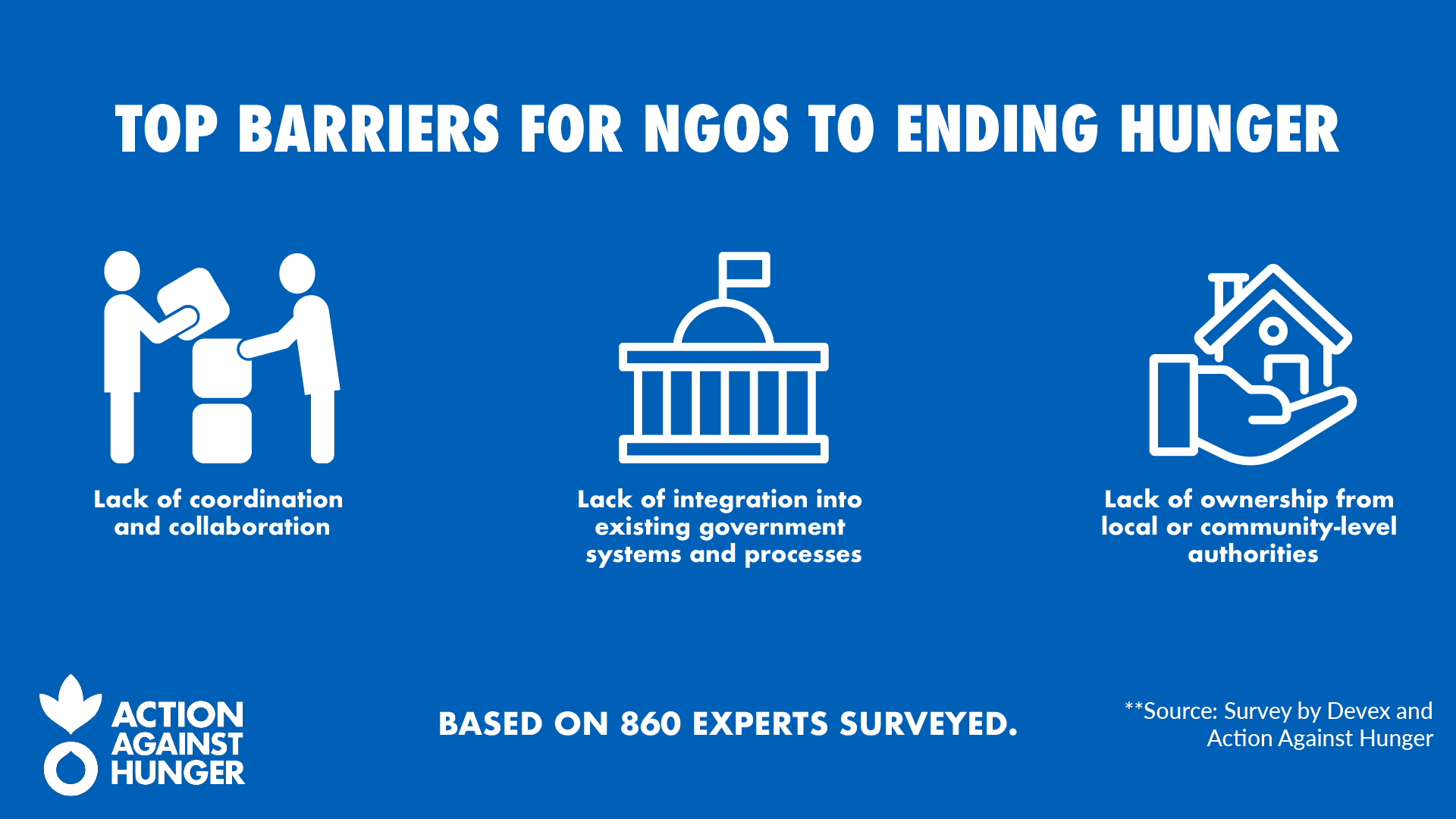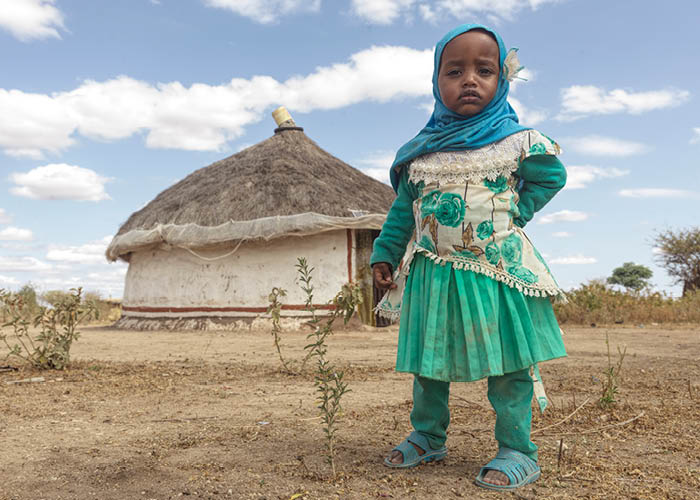A new report released today found that nearly 90% of international food security and nutrition experts surveyed predict that without innovation and bold action, global hunger will continue to rise over the next decade. However, two-thirds believe achieving the United Nations Sustainable Development Goal (SDG) of zero hunger by 2030 is still possible if current approaches change. They also say it is possible to end hunger if the UN’s 2030 deadline is extended.
Sponsored by Action Against Hunger, a nonprofit leader in a global movement to end hunger, and developed by Devex, an independent development news organisation, the report is based on a survey of more than 860 international NGOs, donors, corporations, private foundations, and UN agencies, supplemented with in-depth interviews. It is the first survey of this scale to collect expert insights on the pandemic’s current and potential long-term impacts on hunger globally, along with concrete recommendations for interventions.
“This report offers a rare window into the development community’s thinking about the urgent, and increasingly deadly issue of global hunger,” said Raj Kumar, President and Editor-in-Chief at Devex. “We were able to surface a number of practical proposals for what should change to save lives and meet UN SDG #2, zero hunger by 2030.”
“This important report underscores the need for bold, collective action to reach the 811 million people going to bed hungry each night. Our world today has enough food, technology, logistics and other capabilities to eliminate hunger and malnutrition forever. While huge progress has been made due to substantial, selfless work, rethinking this challenge and contributing our collective will and wisdom can ensure victory within this decade.”
Key recommendations from today’s report include:
- Take a localised approach. 33% of survey respondents believe current approaches to eradicating hunger could be more effective if they were driven by local or community-level stakeholders.
- Focus on high-impact initiatives. The report highlights a need to expand evidence-based poverty alleviation programmes, such as vocational training for rural youth.
- Collaboration. Sixty-two percent of survey respondents said that a lack of clear, unified policies around hunger from national governments, donors, and other actors hampers true collaboration.
- Hold governments accountable. The report reveals a need to overcome challenges affecting hunger-related government programmes, including: conflicting political priorities, a disconnect between policies and implementation, and lack of funding.
- Embrace innovation. The report also highlights key opportunities for progress, including innovation to reduce food waste, strengthening value chains, and expanded research and development.
The report’s findings take on new urgency as the world witnesses a reversal of progress in the fight against hunger. In December 2021, a group of 120 NGOs from around the world expressed deep concern over the 370% rise in people experiencing catastrophic levels of hunger since April 2021 and the staggering 45 million people who are at on the brink of famine.
“For more than 40 years, Action Against Hunger has taken the fight for nutrition and opportunity to the people and places where support is needed most, places where hunger too often turns deadly,” said Raymond Debbane, Chair of Action Against Hunger USA. “This report confirms that current approaches to hunger prevention and relief need to be dramatically expanded to achieve zero hunger by 2030, especially in light of recent setbacks due to the Covid-19 pandemic, the impact of climate change, and growing levels of conflict.”
“We need to renew the movement against hunger, and this report highlights the need to enlist a broader range of partners as well as to engage impacted communities in new ways,” Debbane continued. “I believe it is possible to end hunger in our lifetime, as long as we come together with a renewed sense of hope and determination.”

Action Against Hunger is a nonprofit leading a global movement to end hunger in our lifetimes. It innovates solutions, advocates for change, and reaches 25 million people every year with proven hunger prevention and treatment programmes. As a nonprofit that works across 46 countries, its 8,300 dedicated staff members partner with communities to address the root causes of hunger, including climate change, conflict, gender inequality, and emergencies. It strives to create a world free from hunger, for everyone, for good.
Devex is the largest media platform for the global development community. A social enterprise, Devex connects and informs 1,005,000+ development, health, humanitarian, and sustainability professionals through news, business intelligence, and funding & career opportunities to do more good for more people.



